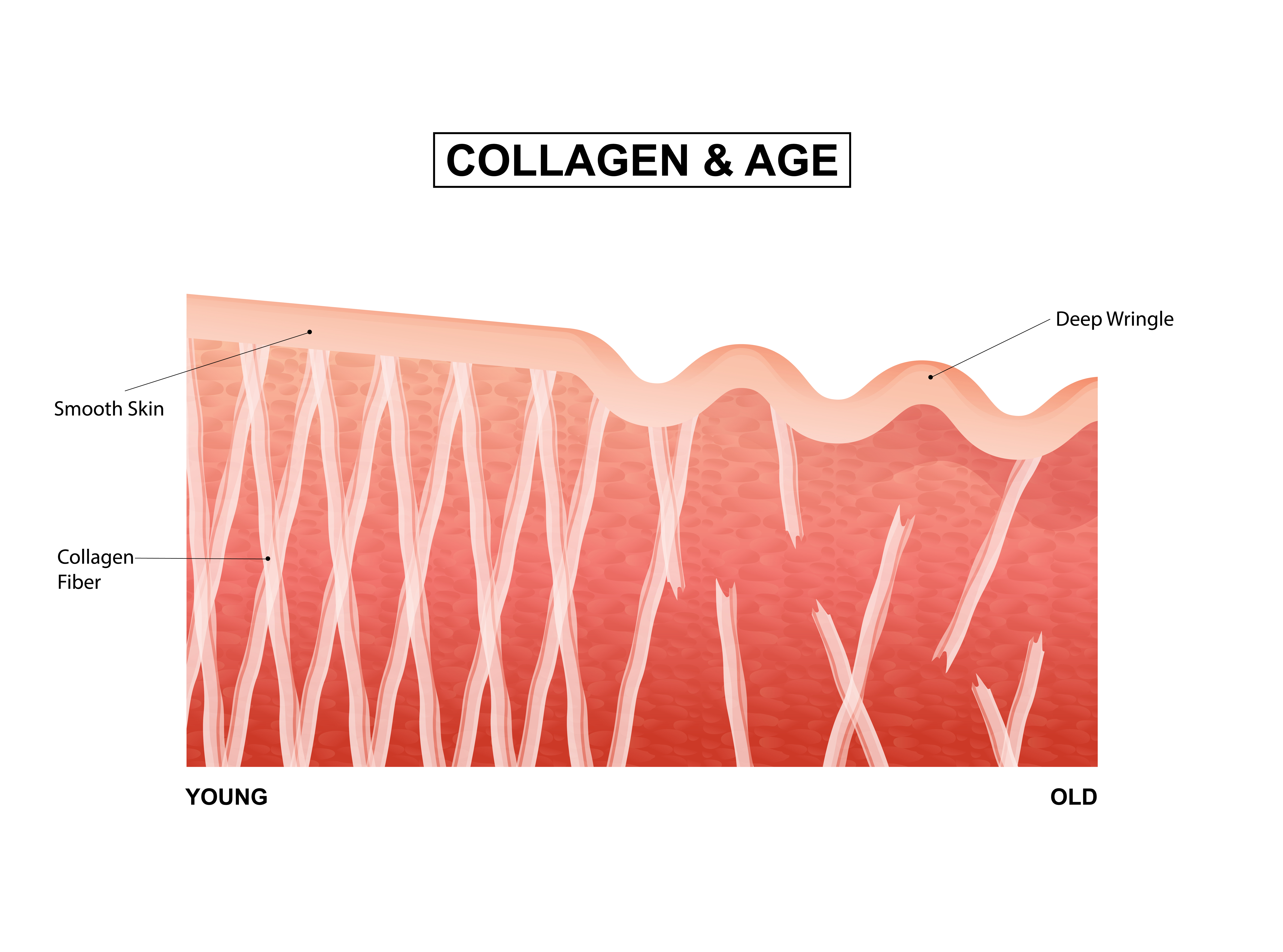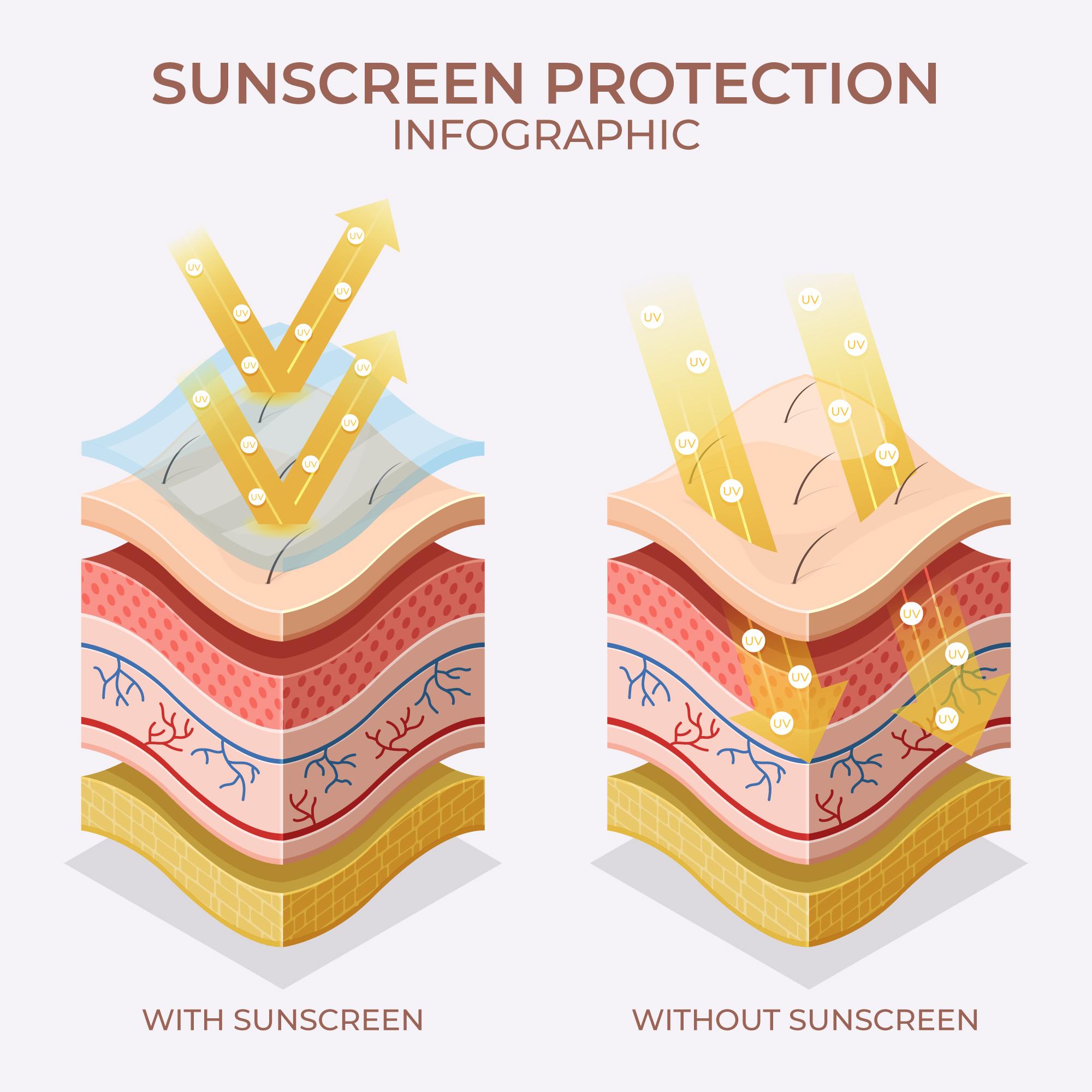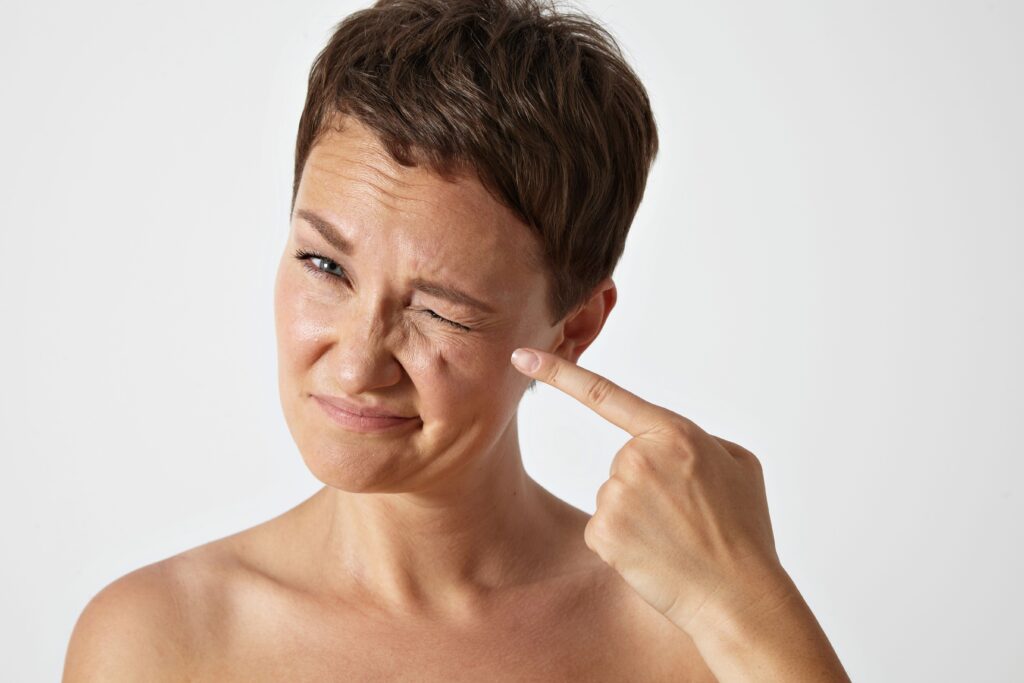Understanding Menopausal Changes in your Skin.

During your menopausal journey, levels of oestrogen will fluctuate and then start to decline and the fat stored in your body is re-distributed; leaving less in your face, neck and breasts and more around your abdomen, hips and thighs. This lack of fat can cause areas of the face, neck and breasts to start sagging; developing more fine lines and deeper set wrinkles.

Oestrogen is key to the production of collagen and elastin, which are the essential building blocks of the skin! The collagen gives your skin it’s structure, whilst elastin allows your skin to stretch and move. The reduction of these two proteins can lead to the sagging and aging of your skin.
Levels of glycosaminoglycans compounds also reduce with age, which can leave your skin dryer, as it can no longer naturally maintain its hydration.
Blood capillaries reduce too, meaning less oxygen and nutrients are carried to the top layers of skin, which then start to thin and can get damaged more easily.
You may start to notice changes in your skin’s pigmentation as well! The production of melanocyte cells that produce melanin (the pigment in your skin) are stimulated by oestrogen too! For example, you may see small white dots on areas that have previously been exposed to sunlight.
On the contrary, if you have too much melanin, you may experience hyper-pigmentation, which can show up as dark patchy areas on the faces and, or, hands. This can often occur during pregnancy (Chloasma), as the female hormones fluctuate.
The Most Common Skin Issues During Menopause
There are several common skin issues that you may experience during menopause, examples include:
Dryness: As oestrogen levels decrease, the skin’s ability to retain moisture is reduced, leading to dryness and a dull complexion.
Wrinkles and Sagging: The decline in collagen and elastin production can cause your skin to lose its ‘scaffolding’ and elasticity, resulting in the formation of wrinkles and sagging.
Acne Breakouts: Hormonal fluctuations can lead to increased oil production, which can clog your pores, causing acne breakouts.
Sensitivity and Redness: You may experience increased sensitivity or redness in your skin due to hormonal changes, which can also lead to conditions such as Rosacea and dermatitis.
Tips for Healthy Skin Care During Menopause
While menopause can bring about changes in your skin, there are several steps you can take to help maintain healthy skin during this stage of life:
Moisturise: Using a rich, hydrating moisturiser with quality emollients designed to combat dryness will keep your skin nourished and reduce sensitivity.
Gentle Cleansing: Opting for a gentle cleanser! One that doesn’t contain any alcohol or harsh chemicals, so it won’t strip your skin of its natural oils. This will help you to keep your skin soft, clean, and breakout free, whilst maintaining your skin’s ph. levels, to prevent bacteria build up and excess oiliness.
Sun Protection: Protecting your skin from harmful UV rays by wearing daily sunscreen with a high SPF will prevent long-lasting damage to the skin, such as cancer as well as premature skin ageing. As skin can become more sensitive during the perimenopause, wearing sunscreen can help in the treatment of conditions such as eczema and rosacea, as it will help to prevent burning and excessive redness. (see below for more info on SPF)
Healthy Lifestyle: Maintaining a balanced diet, exercising regularly, and getting enough sleep are vital to support your overall health during the menopause. Including vital minerals and oils into your diet can help reduce oxidative stress, improving your skin health and reducing the effects of skin conditions.
Hydration: Drinking plenty of water will keep your skin hydrated from within. Being even slightly dehydrated will cause your skin to look dry, tired and slightly grey!
Stress Management: Finding healthy ways to manage stress, such as with face yoga, menopause yoga, meditation and mindfulness will have a massively positive impact on all your menopause symptoms, lessening breakouts, flare-ups and give you a brighter complexion.

The Importance of Sun Protection
During menopause, your skin becomes more susceptible to damage from the sun's harmful UV rays. This is because the decline in oestrogen levels reduces the skin's natural ability to defend itself against UV radiation.
Exposure to the sun without proper protection can lead to premature aging, including the formation of wrinkles, age spots, and an increased risk of skin cancer.
To protect your skin during menopause, it’s crucial to incorporate sun protection into your daily skincare routine. Apply a broad-spectrum sunscreen with an SPF of 30 or higher, even on cloudy days. Reapply sunscreen every two hours, or more frequently if you’re sweating or swimming. Additionally, seek shade during peak sun hours and wear protective clothing, such as wide-brimmed hats and long-sleeved shirts.
According to Cancer Research UK:
“sun exposure is the primary cause of skin cancer. In their opinion, more than 8 out of 10 cases of melanoma could have been prevented through a greater understanding of sun damage and how to avoid it.”
By prioritising sun protection, you can help maintain the health and appearance of your skin during menopause and prevent skin cancer.


Incorporating Anti-Aging Ingredients
As the skin undergoes changes during menopause, incorporating anti-aging ingredients into your skincare routine can help address specific concerns and promote a more youthful complexion.
Some key ingredients to look for in anti-aging skincare products include:
Retinol: A derivative of vitamin A, retinol helps to stimulate collagen production, reducing the appearance of wrinkles, and improving the texture of your skin.
Hyaluronic Acid: Known for its hydrating properties, hyaluronic acid helps plump the skin, reducing the appearance of fine lines and wrinkles.
Peptides: Peptides are chains of amino acids that promote collagen synthesis, helping to build and maintain the structure of the skin and help improve you skin’s elasticity.
Antioxidants: Antioxidants such as vitamin C and E help protect the skin from free radical damage and promote a more youthful looking appearance.
If you’re looking to incorporate these ingredients into your skincare routine, make sure you speak to a skincare consultant to make sure the ingredient is right for your skin.
It’s actually a really good idea to see a consultant as your skin changes, so you can switch out any of your current products for ones that are more suitable to perimenopause or menopausal skin.
If you do decide to go it alone, make sure you start with a low concentration and gradually increase, so you know your skin can tolerate the product. It’s also important to follow the instructions provided by the product manufacturer.
By incorporating these anti-aging ingredients, you can support your skin’s health and minimise the visible signs of aging during your menopause.
Tired or Transitioning?
Take the Perimenopause Symptom Checker Quiz
Right now, you may be feeling:
- Exhausted from irregular periods, increased headaches, or brain fog.
- Anxious that an emotional breakdown in the office is looming.
- Unmotivated to achieve your career goals due to increased stress and fatigue.
- Fearful of what might happen if you tell your manager, or team what’s going on for you right now.
Take this quiz and find out if you could be in perimenopause, so you can start making sense of your symptoms.
This is for you if you want to:
- Learn what your most significant symptoms are and understand the impact they are having on you.
- Feel a sense of relief from getting a clear overview of what’s going on for you right now.
- Be empowered to take back control of your health and wellbeing so you can get back on track and start to feel more like yourself again.




